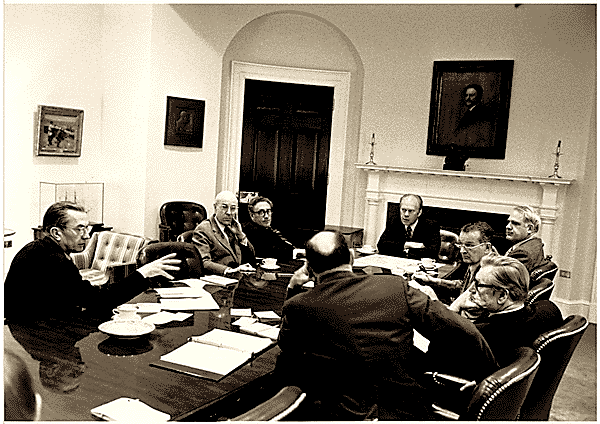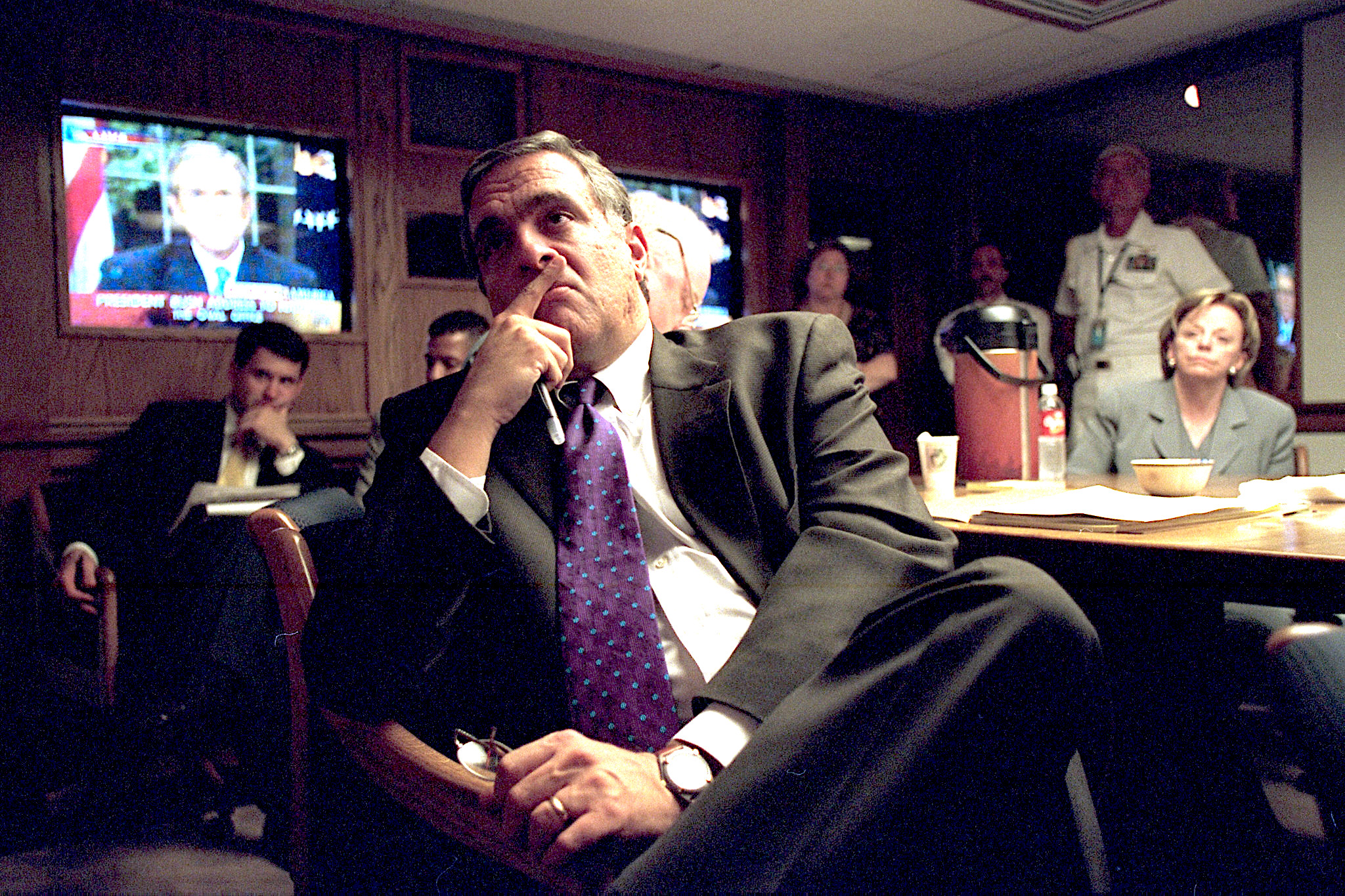This originally appeared at Consortium News.
President-elect Donald Trump’s selection of Tulsi Gabbard to be director of national intelligence (DNI) will cause shockwaves in and among the 18 fiefdoms that now comprise the U.S. intelligence community.
Gabbard will be fighting an uphill battle if she tries to herd those 18 cats into a cohesive whole and restore integrity to intelligence analysis. The hill’s incline will be still steeper, if she takes seriously her duty to warn the president of the frequently noxious blowback of C.I.A. covert actions. I cannot overcome the urge to quote from “The Princess Bride”: Good luck stormin’ the castle, Tulsi… It will take a miracle!
In short, the odds are against her. Whether she succeeds depends, first and foremost, on how strongly the president backs her. Unlike most former DNIs, she has already demonstrated uncommon courage, as well as smarts and political skill.
On the other hand, she has had virtually no experience managing a large institution, much less a “community” well versed in internecine warfare to protect individual rice bowls, and populated with careerist bureaucrats all too accustomed to telling the ultimate boss, the president, what he wants to hear.
Important Duties
The DNI is in charge of preparing The President’s Daily Brief (PDB), National Intelligence Estimates and the annual Threat Assessment required by Congress. What is less well known is her role in covert action – a favorite of the C.I.A.’s clandestine service.
Executive Order 12333 (July 2008) stipulates:
“The Director of National Intelligence (DNI) shall oversee and provide advice to the President and the NSC with respect to all ongoing and proposed covert action programs.”
Thus, what the EO says. My own experience suggests that this covert-action-related duty has been more honored in the breach than in the observance, so to speak. Director of Central Intelligence William Colby was, in my personal experience, the only director to give intelligence analysts a look at some covert action proposals and ask for comment. I served directly under Colby as an acting national intelligence officer in the mid-70s.

Colby, at left, briefing President Gerald Ford and his senior advisers on the deteriorating situation in Vietnam, April 28, 1975. (David Hume Kennerly, U.S. National Archives and Records Administration, Public domain)
Will DNI Tulsi Gabbard (assuming she is confirmed by the Senate) step up to this task? It would take uncommon courage. Was the current DNI, Avril Haines, informed beforehand that the C.I.A. would blow up the Nord Stream pipelines? If so, did she give it her blessing? Or was she kept in the dark?
Blowing Up Pipelines…
My guess is that DNI Gabbard would have promptly recognized the folly in that C.I.A. “can-do” attitude/escapade and would have briefed the president on its longer-term implications. She is a good listener to analysts who she asks to brief her. I know that, too, from personal experience responding to her questions when she was one of Hawaii’s representatives in the House.
It would take a courageous and politically astute person and strong backing and trust from the president for any DNI to be able to fulfill the duty to “oversee and provide advice … on covert action programs.”
… and Blowing Off the Analysts
Sizable covert action programs require a sanity check from analysts with substantive expertise, as sad experience has shown. Recall the Bay of Bigs operation of April 1961. At President John Kennedy’s request, historian Arthur M. Schlesinger Jr. investigated the affair. His conclusion, set down in a MEMORANDUM FOR THE PRESIDENT dated June 30, 1961, speaks for itself:
“The trouble with the Cuban [Bay of Pigs] operation, for example, was not that the intelligence and operations were combined, but precisely that the Cuban operation evaded systematic intelligence judgment. The Intelligence Branch (DDI) of the CIA was never informed of the existence of the Cuban operation. The Office of National Estimates was never asked to comment on the assumption, for example, that discontent had reached the point in Cuba where a successful landing operation would provoke uprisings behind the lines and defections from the Militia.
I gather that if its opinion had been invited, DDI would have given quite a different estimate of the state of opinion in Cuba from that on which the operation was based. …
The Bureau of Intelligence and Research of the Department of State knew even less about the Cuban operation.”
DNI Position: A Creature of 9/11

Tenet listening to President George W. Bush’s address on Sept. 11, 2001, in the President’s Emergency Operations Center. (U.S. National Archives via Flickr, Public domain)
As most are aware, there was enough intelligence available before 9/11 to prevent it. But the cats would not be herded. C.I.A. would not share with F.B.I. and vice versa. NSA would share with no one. Here’s one account that will turn your stomach.
The congressional oversight committees as well as the administration and the intelligence community were not only intent on covering up what had happened, but needed to make it appear that remedial action was being taken.
Enter the 9/11 Commission and its recommendations. Here, they said, was the problem: George Tenet, as director of central intelligence (head of the whole community) as well as chief of the C.I.A. was overburdened.
In fact, Tenet was the antithesis of an effective head of the intelligence community; he screwed up royally. But he also knew “where the bodies were buried” – which key administration and congressional officials had been exposed to some of the disregarded intelligence. So it was not deemed safe to lay the blame where it clearly belonged.
A fiction was devised. The problem was said to be that “no one was in charge of the intelligence community.” So the 9/11 Commission recommended that a new superstructure be created to coordinate the community (and let no one be held accountable).
On July 22, 2004, immediately after the 9/11 Commission report was released, I found myself with 9/11 commissioner (and former senator from Washington) Slade Gorton in the BBC blue room in Washington. I had the temerity to remind him that it was far from the case that “no one was in charge” of the intelligence community; that Tenet had all the authority he needed.
Gorton turned to me, smiled and said: “Of course we know all that; but we in the Commission and in Congress just had to do something so the American people would see that we were doing something.”
Yuck.
The national intelligence director, and the newly created bureaucracy, is what it is. Maybe Tulsi Gabbard can take the reins and make the community work. It will take a miracle; let’s hope for one.
Ray McGovern works with Tell the Word, a publishing arm of the ecumenical Church of the Saviour in inner-city Washington. His 27 years as a C.I.A. analyst included leading the Soviet Foreign Policy Branch and conducting the morning briefings of the President’s Daily Brief. In retirement he co-founded Veteran Intelligence Professionals for Sanity (VIPS).


